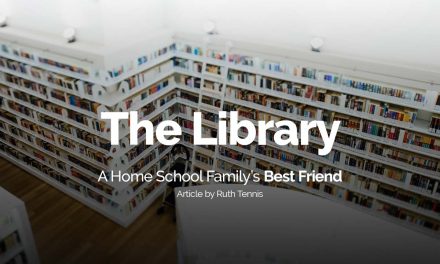An assessment is a tool to measure a student’s understanding. While it can be a 10-question written quiz, there are loads of options for assessing a learner. Let’s talk about a few you can try.
Narration is a good one with little kids. Ask them to retell what they just read or heard. In their brain, they are reorganizing content in a way that makes sense to them in order to then expel that content. That is a lot of connections happening! Connections in the brain make content stick so kids can recall that content on demand. Thus, we have growth! Isn’t it exciting to see that happen before your eyes?
As kids get older and have more tools in their toolbox to build things (more connections!), we can require more complicated tasks as we assess their learning. Literature studies is a great opportunity to creatively assess. If you have ever used a literature guide, you have an idea what I am going for. The guides will ask higher order questions (not one-word answers) that you can easily expand upon. You might say, “Do you agree with that character’s choice there? What would you have done in that situation?” Talk about connections! That kiddo will remember that connection for a very long time after internalizing it. All because of your creative assessment of asking the right type of question.
Ok, this one might blow your mind a little, but hear me out. I like the program History of US a lot. Like… really a lot. It is so readable and engaging! The series of 10 books are chronological, so you can do them all in one year or split them over 2 years with students between about 5th and 8th grades. The catch is that they do not have any questions or tests in the books. They are just readers. There is a separate assessment book which is very helpful, but you can also assess creatively. Upon completing a volume, ask your student to create a test. Be specific about the task. Tell them it must be between 20 and 25 questions that cover the important points in that book. Think about that. They now have to go back and determine the most valuable information and distill that into an examination. The creation process IS the assessment! They will need an answer key as well. Who takes the test? You can. They can. A sibling can. It doesn’t really matter because that is not the assessment part of the equation.
Other creative assessments can include things like making a video about something you learned. Act something out for your family Build something to represent what you’ve learned. Create a card game or a game show with animal facts. Make a diorama with Legos or Playmobil and explain it to someone. Rewrite the ending of a story. Here is a fun one – do research about a person (real or fictional) and write interview questions. Have a sibling or parent interview the child as that character and answer questions as that person would answer. This is great for literature and history, or scientists and inventors. “So, Benjamin Franklin, what’s your favorite saying and why? What did you have for breakfast? Read any good books lately?” It’s so fun, and again, the process is creating so many connections in their brain that they will remember for years to come. Now that is an effective assessment! ~ Sara





